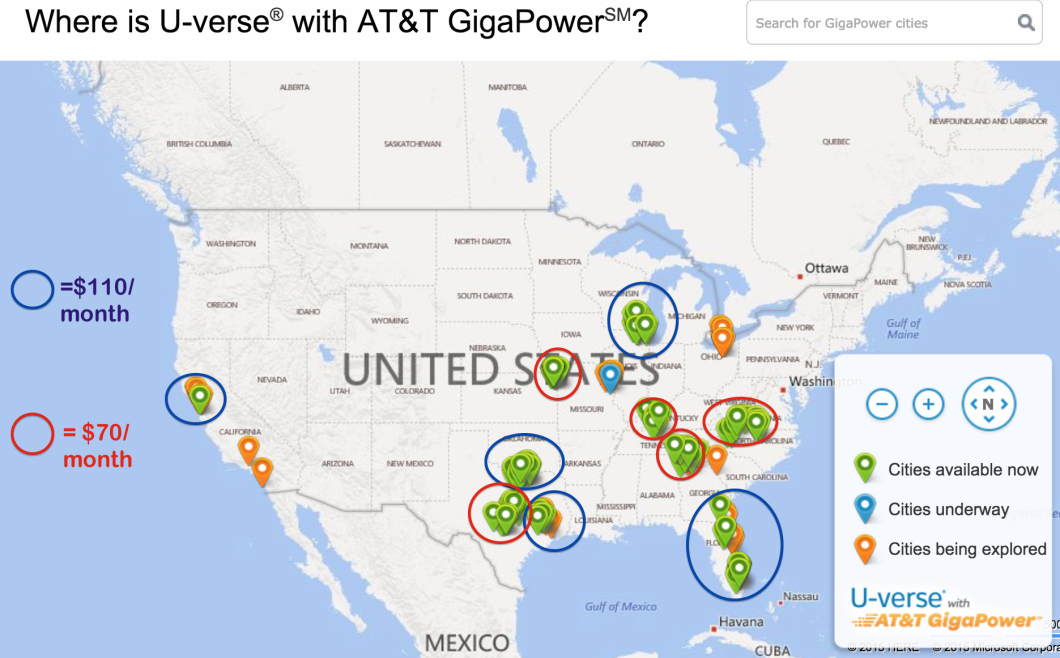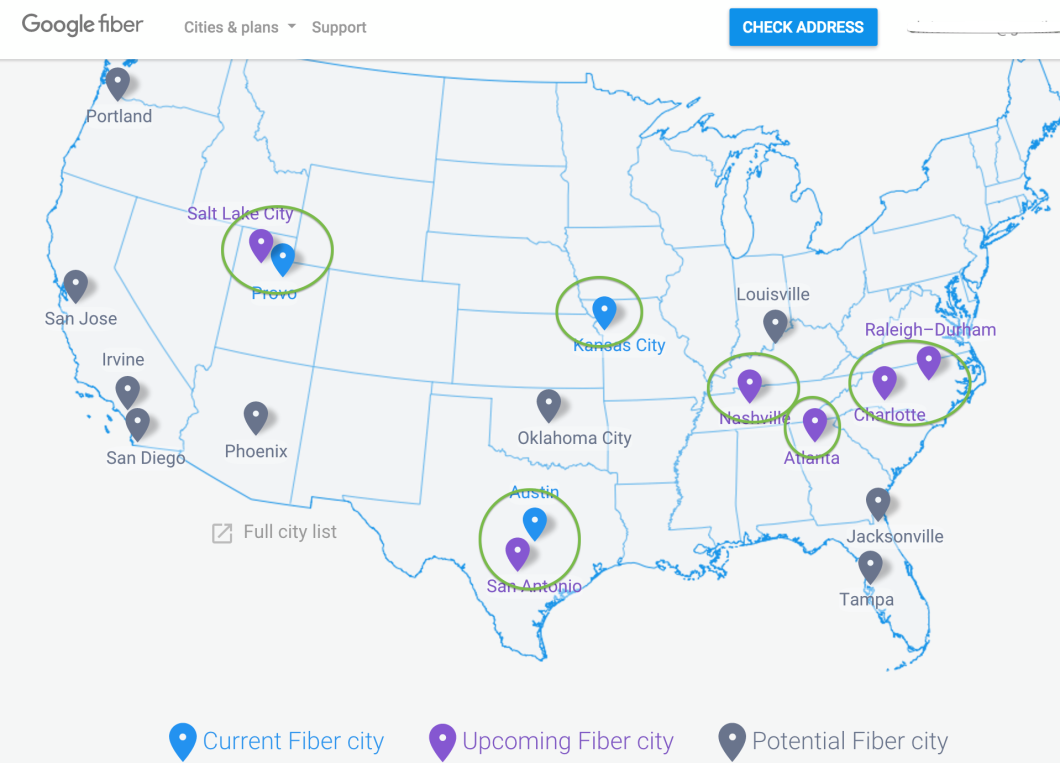AT&T Expands High-Speed Fiber Network, Still Overcharges In Areas Without Competition

All of the lower-priced areas circled in red also just happen to be markets where Google Fiber already exists or is planning to build out in the near future.
It’s a topic we’ve covered before, but the hope is that the more consumers are aware of these price discrepancies, the more they’ll demand that AT&T change its policies.
For those who aren’t familiar with AT&T’s odd pricing model for GigaPower, here’s how it’s worked thus far.
If you live in a new GigaPower market and your only other choice for broadband is cable Internet (with speeds that top out anywhere from 25 megabits per second to 100Mbps), AT&T will charge $110/month.
If you live in an area where Google Fiber (which offers 1 gigabit per second service for $70/month), AT&T will charge you significantly less, sometimes matching that Google price, sometimes slightly higher like the $80/month offered in Atlanta… which happens to be where Comcast is launching its fiber service that’s twice as fast as Google or AT&T.
(Of course, regardless of which type of market you live in, AT&T will track your web-browsing behavior and sell that information to advertisers.)
Look at AT&T’s GigaPower service map above. The markets circled in blue are the pricier ones. The markets circled in red pay less. Then compare those red circles to the active Google Fiber sites (circled in green) on this map:
The only one missing is Salt Lake City/Provo in Utah, and that’s only because AT&T isn’t the primary landline service provider in those cities.
This morning, AT&T announced a new slate of markets for GigaPower, and just as expected, these price discrepancies are still present.
In markets where Google and/or Comcast are in the process of building out fiber networks, AT&T is still charging a lot less. This means that new GigaPower markets in Georgia (Alpharetta, Cartersville, Duluth, East Point, Rome); North Carolina (Clemmons, Garner, Holly Springs, Salisbury — where the city just launched its own 10 gigabit service); and Tennessee (Galatin, Spring Hill) get the $70/month option.
Meanwhile, if customers in the new markets in Florida (Oviedo, Sanford, Coral Gables, Homestead, Miami
Gardens, Parkland); Illinois (Bolingbrook, Mundelein, Shorewood, Volo); or even AT&T’s home state of Texas (Houston), will be paying the full $110/month for the same service.
Companies aren’t going to give consumers better prices unless they demand them by refusing to buy at the high asking price, or unless competitors offer a comparable service at a lower rate.
Want more consumer news? Visit our parent organization, Consumer Reports, for the latest on scams, recalls, and other consumer issues.


